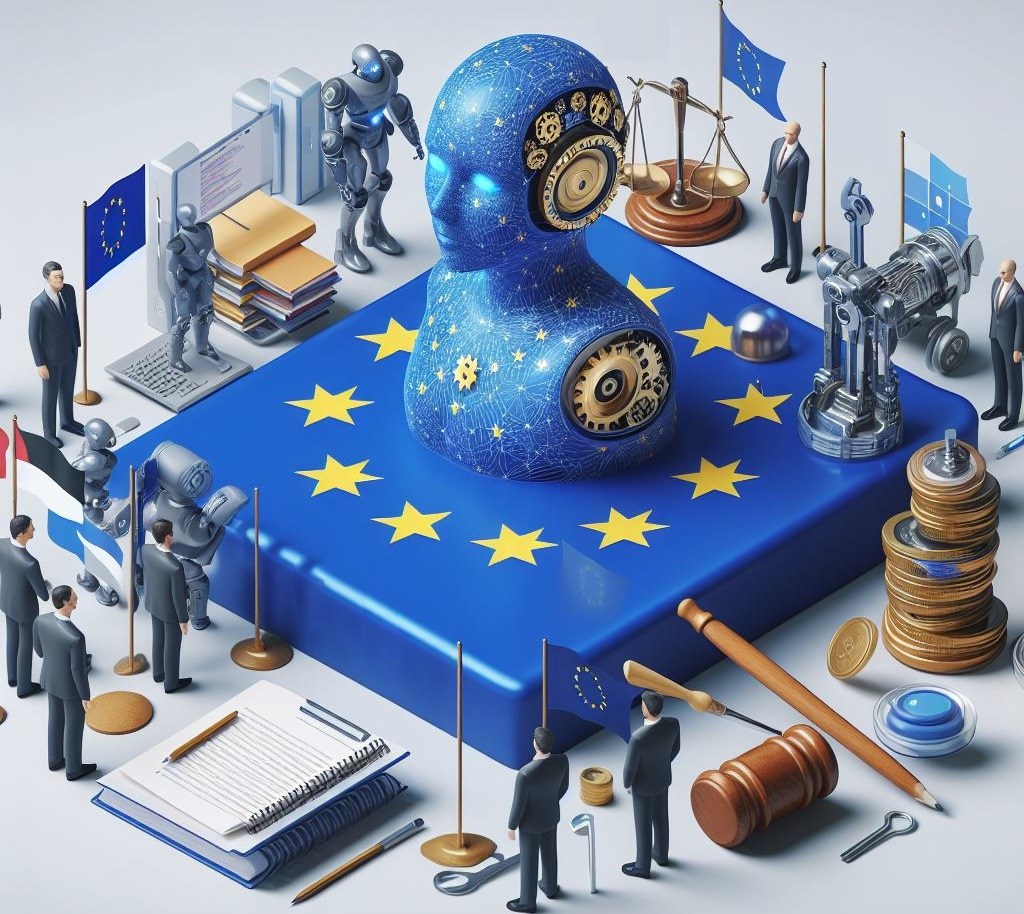As the sun sets on another day, the European Union edges closer to a groundbreaking agreement on regulating artificial intelligence (AI) – a potential game-changer in the realm of technological governance.
After prolonged negotiations, representatives from the European Commission, the European Parliament, and 27 member countries have found a common ground on controlling generative AI tools. These tools, exemplified by OpenAI's ChatGPT and Google's Bard, possess the unique ability to conjure content on demand, marking a pivotal moment in the broader legislation known as the AI Act.
This agreement is not just a bureaucratic milestone; it signifies a crucial stride toward establishing the most comprehensive AI regulation in the Western world. The EU, stepping into uncharted territory, is poised to become the first non-Asian government to impose robust constraints on generative AI technology.
This feat assumes particular significance in the absence of substantial action by the US Congress, thereby positioning the EU at the forefront of shaping the narrative surrounding AI tools like ChatGPT and Bard.
The road to consensus has been rife with intricate debates, reflective of the global discourse on AI regulation. The EU, mirroring the struggles of other nations such as the US and the UK, grapples with the delicate equilibrium between safeguarding its burgeoning AI startups and mitigating potential societal risks.
Throughout months of deliberation, policymakers have meticulously fine-tuned the language of the AI Act, racing against time to secure passage before imminent European elections. These elections loom large as a potential catalyst for further modifications, adding an extra layer of urgency to the negotiations.
In the crucible of debate, key sticking points have emerged, with countries like France and Germany opposing rules that could ostensibly handicap their local AI enterprises. Despite these challenges, optimism pervades the air, as officials anticipate a finalized deal early Thursday.
The proposed plan, emanating from EU policymakers, outlines stringent requirements for AI model developers, mandating transparency on training methodologies, summarization of copyrighted material, and clear labeling of AI-generated content. Moreover, models carrying "systemic risks" would be subject to collaboration through an industry code of conduct, necessitating monitoring and reporting of any incidents.
As the clock ticks toward dawn, the EU stands on the cusp of ushering in a new era of AI regulation, steering the course for a technologically shaped future.
Read next: The Biggest Mobile App Trends for 2024 Revealed
by Irfan Ahmad via Digital Information World

No comments:
Post a Comment